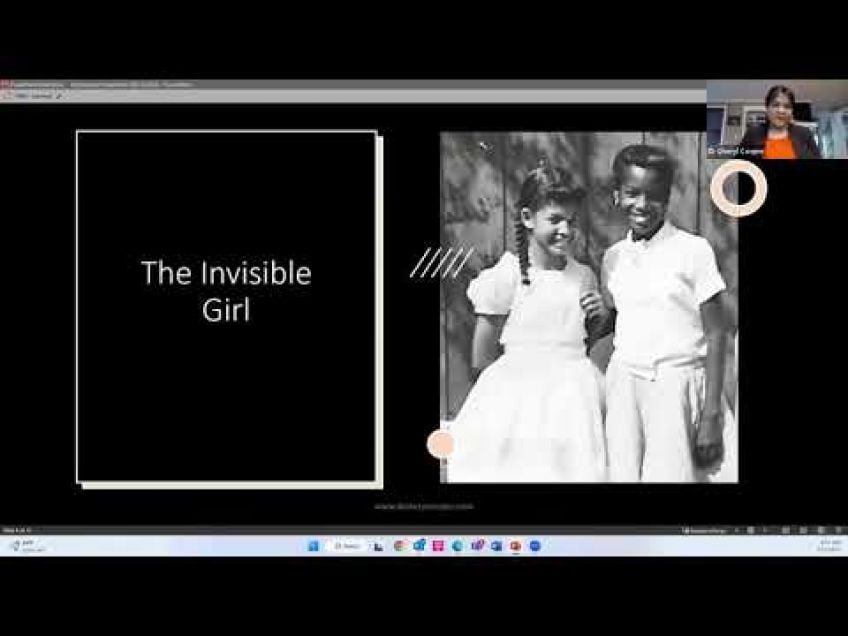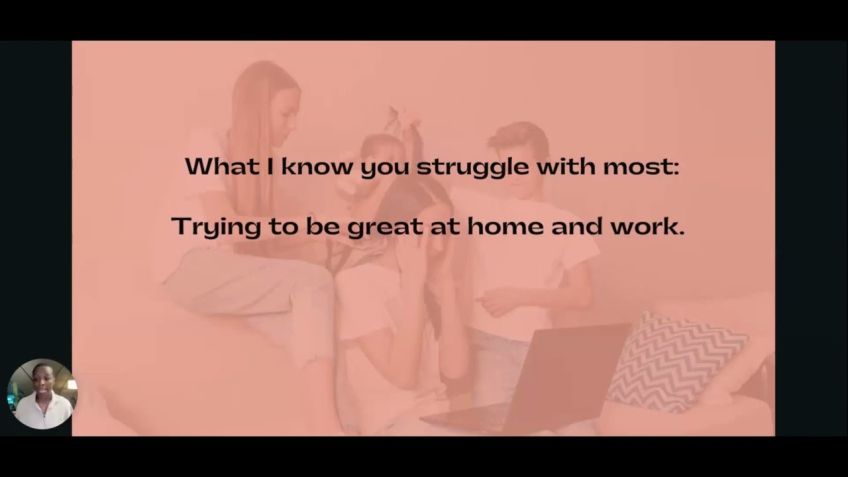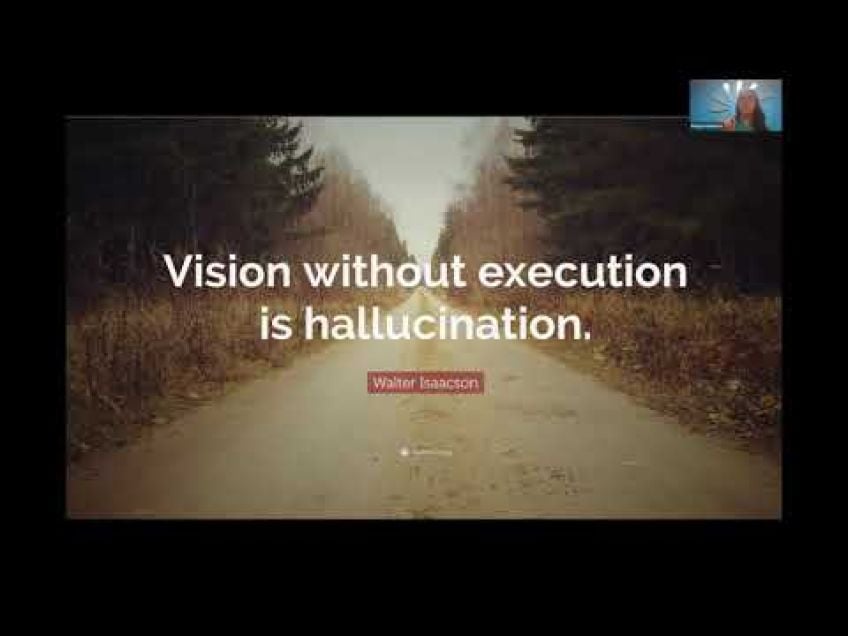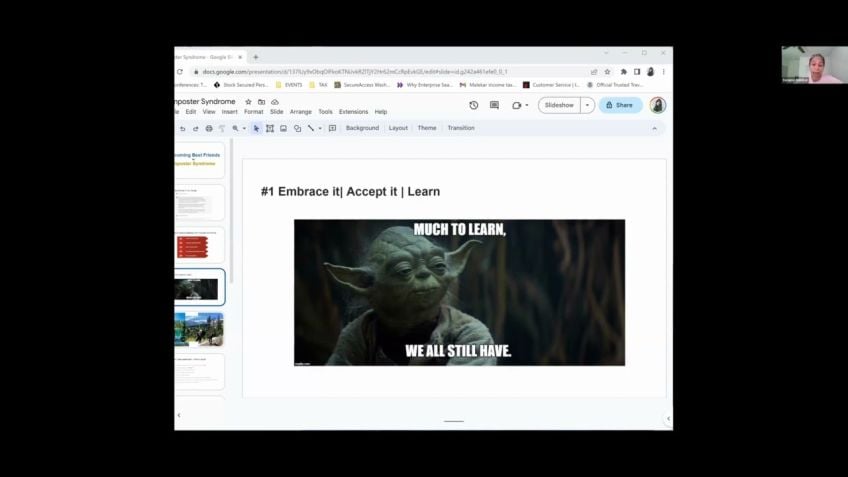Filling your Cup: Eliminating Resentment and Advocating for your Boundaries by KC Lathrop
Filling Your Cup: Navigating Resentment and Boundary Setting In Our New Normal
Hi everyone, I'm Casey Lathrop. Today, I'd like to discuss an aspect of our post and ongoing pandemic society that often goes overlooked: eliminating resentment and advocating for your boundaries. I believe this topic is particularly relevant given our shared experiences over the past years and I wanted to share my own journey dealing with these issues as I navigated a new job and adapted to this novel way of working.
The Changing Nature of Work and Society
The past few years have presented us with significant changes. Notably, 2020 shone a harsh light on societal disruption and confusion, while 2021 represented a year of denial as society attempted to reclaim pre-pandemic norms. This past year, broadly speaking, has been a time of acceptance of our hybrid existence post-pandemic.
Just over a year ago, I joined Cisco in an organization called Workforce Experience in a centralized design organization. Our goal is to enhance productivity and engagement for all employees, and within a year, our vibrant team grew from just 10 to nearly 50 people. With this growth came the challenges of widely varying perspectives, ideas and experiences.
We faced the dichotomy of growing this new organization while also adapting to the realities of remote work. From recreating those small moments once experienced in office to figuring out how to build rapport among colleagues remotely, it hasn’t been an easy journey.
Working Through Change, Resentment and Boundaries
The crux of today's discussion revolves around three concepts: change, resentment, and boundaries. Change is inevitable, and often fraught with fear and uncertainty. However, framing change as a forward momentum can be a healthier perspective, which helps to avoid the pitfalls of resentment. Resentment is a toxic emotion and is frequently the aftermath of change not properly processed.
On top of changes enforced by the global environment, personal changes such as starting a new job or adjusting to reshuffling within an organization can be overwhelming. In these situations, setting boundaries assumes more importance than ever.
Knowing your Limits: Setting Boundaries
Knowing your limits is key to setting boundaries. It's crucial to acknowledge when your cup is too full, or filled with the wrong things. You need to be on guard against overcommitting to tasks when you clearly have too much on your plate already. For instance, the prospect of declining a task assigned by your boss can be daunting but being honest about your limited capacity is crucial. Clear and direct communication can make boundary-setting easier and more effective.
Navigating Resentment and Protecting Your Own Needs
A vital aspect of minimizing resentment is being transparent and up front about what you can and cannot take on. Overworking yourself can lead to burnout and feeling underappreciated – it’s a certain recipe for resentment. The right way to handle this is to say ‘no’ when you find your cup already running over. Remember, it's not about saying no to others but about saying yes to yourself.
However, setting these boundaries can be hard, especially when the general pressure is to always say ‘yes’. But, with practice and honesty, setting boundaries can bring peace, help avoid burnout and maintain your energy levels. The crux is about filling your cups with things that are good for you.
Finding Comfort in Discomfort
Accepting and adapting to the uncomfortable aspects of life builds resilience. This is particularly important when it comes to setting boundaries. Taking a few seconds or minutes to establish your boundaries can help eliminate resentment that could otherwise fester for much longer. Discomfort is temporary, but the power of setting boundaries compels enduring benefits.
So, the next time you feel overwhelmed, remember in discomfort, there’s comfort knowing that discomfort is temporary. Setting your boundaries can arguably create a better version of yourself. So, let's all start setting our own boundaries and make the workplace a better, more understanding place for everyone!
Video Transcription
All right, let's get started. So, hi, everyone. Thank you so much for joining today. My name is Casey Lathrop and I'm very excited to be here to present my talk, filling your cup, eliminating resentment and advocating for your boundaries.I chose this topic because I really wanted to reflect on where we are as a society in this post and ongoing pandemic. But also to talk about my personal experience in starting a new job while adapting to this new way of life and new way of working. So obviously 2020 was a difficult year for all of us. It was definitely a year of disruption, confusion and in some ways shocked us societally. 2021 was more of this year of denial. So 2021 was all about how do we get back to where we were before the pandemic started. This is when a lot of companies were trying to reopen their doors and get people back into the office. Schools were trying to open up. We're trying to travel like we once were and we just kept facing more resistance. Basically, we just weren't ready to do that and we kind of learned there that we were never going to go exactly back to where we were before 2020. And this past year has been more of the year of acceptance. So it's an acceptance of this new reality that is really this hybrid of life that exists before the pandemic and also what we've learned and how we've adapted to all the changes post pandemic.
So a little over a year ago, I joined Cisco and I work in an organization called Workforce experience in a centralized design organization. The overall mission is about increasing productivity and engagement for all employees. So we work on everything from eliminating uh redundancies and email communications to redesigning the internet experience. A big part of my job other than growing and managing a content design team is helping to build a brand new design organization. And I'm doing this alongside a super talented and diverse group of people. So not only is the organization itself new but also the majority of the colleagues and the people that make up the organization are also new in less than a year, we went from 10 people to almost 50 people. So it it has been incredible growth in such a short period of time. We're all coming in with different ideas of what works and what doesn't work all based on our own experiences, which is pretty normal, right? We only know what we know, but it's also good to challenge ourselves and identify what we don't know. And a lot of that, a lot of that is we don't really know what we don't know.
Not only are we in this new organization where we're hiring really fast and figuring out our ways of working. We often say we're building the plane as we fly. But we're also collectively adapting to this new reality of work. We have the flexibility of working remotely, which is amazing and well received by all of us. But we're also adjusting to replicating those small moments that we used to have in the office in person. For example, how do we onboard new employees and build that camaraderie and increase engagement and just build that rapport between colleagues and your direct reporters and leaders while we're all remote well being part of the early stages of an organization, I've observed how people adjust to change and generally what it feels like when you're in the midst of a growing pain, I've learned it's a good, good habit just to label that this is a growing pain and that's why this is uncomfortable.
I really love the idea and try to think about it every day of finding the comfort and discomfort. It helps build resilience, teaches you how to accept the reality of a situation and also allows you just to be more adaptable and open to what these changes could bring. So today I'm gonna center this talk around change, resentment and boundaries. So let's talk about change. Generally speaking, change is really hard even hearing about something that might change could bring a lot of anxiety. Now, why is that change disrupts a very comfortable habit or pattern?
And it's often not the change itself, that's scary to us, but the uncertainty that comes with it, we have collectively experienced so much change in the past few years. How we work, how we spend our free time, how we prioritize how we learn how we travel among so many changes that were forced upon us. It can feel very overwhelming to add on big life event changes like starting a new job or moving into a new location and even more being part of an organization that is also experiencing changes, literally every single day that can feel very discouraging, disheartening and even exhausting with so many changes.
It's really easy to get wrapped up in the uncertainty and the desire to just want to control everything. You might even find yourself simply wanting to spend more of your energy, fighting to get things back to the way that they were instead of just accepting the way that they are. So how do you stay on track and not let that change derail you? This is when it becomes even more important to remember, that change is constant. And the only reason that it comes with anxiety is because it brings uncertainty, think of change as a train moving on a track other than stopping altogether. There's nowhere else for it to go but forward and with moving forward, you're able to see more along the way that you might not have been exposed to before, which in itself can lead to even more growth and possibilities. Letting the change take you off track can lead to resentment. Resentment. Is that negative feeling that we associate with feeling wronged or mistreated? Many people describe it like drinking poison and hoping the other person dies. So when you choose resentment, it's almost like filling, choosing to fill your cup with poison instead of something that's good for you.
Change is already a difficult event for individuals to process you get used to a way something is working and then it changes that can leave you feeling uneasy and unsure of how to navigate an example. Could be. Maybe you have been leading a project for a while pouring your heart and soul into it and then due to business priorities, shifting, you're asked to move to another project that you're no longer going to lead or maybe an organizational change happens and the leadership of your organization or team changes, that might mean that you start reporting to somebody new or your team makeup changes or maybe even the way that your organization, organization runs changes as well.
It's easy for us to be attached to certain outcomes. But when entering an environment of unknown, there is also this need for us to allow ourselves some space for things to settle, even if change is perceived as a good thing and your team recognizes it, it can take time for that change to settle in when organization changes happen.
For example, it's important to also be transparent with your team, your colleagues and even yourself and remind everybody that it is also temporary. In early stages of a team organization or a company, people tend to wear many hats and play a lot of different roles. This makes it easy for burnout to happen and it's already easy for burnout to happen in this meeting fatigue culture that has been created. What tends to happen if you're given more and more responsibilities without equal or more rewards, you can begin to feel underappreciated and overworked.
It may even feel like your time is invaluable. So how do you protect your time and your own needs? Knowing your limits is the first step in setting boundaries. It's crucial that you know, when your cup is too full or simply when your cup is filled with the wrong things. An example of this could be, you already have too much on your plate and you feel overwhelmed. Your boss reaches out to you to, to ask for help with the presentation. Now, if you say no, you worry that they will look down upon you or think that you're incapable or maybe they won't reach out to you again. But you also know that you have a limited capacity and you're already super stressed. So by saying yes, you're actually just stretching yourself way too thin. But why is it so hard to say this? We often take on too much because we equate how much work we do to our own self worth. However, when we do communicate our own needs and limits people actually tend to respect us more for being honest and even more, it could help teach others to set their own boundaries in the situation with your boss asking to, for you to do another task.
When you already have too much on your plate, you could set a boundary like this. I can't right now, I already have too much on my plate. Notice that this is very clear and direct. There's no fluff, it's not over explaining or finding any excuses. It's simply saying I cannot take this on right now. Renee Brown has a really good example of this um in her podcast Unlocking us where she's speaking about the relationship between boundaries and resentment. She tells a story where a teacher from her kids' school asked if she could help with an event that the school was doing. Berne simply said I have too much on my plate right now, but please reach out again when things slow down and I'll try to help. The other parents were appalled that, that she said no. But the teacher was actually really grateful that she was being honest when you're honest with yourself and with others about your own limits, there is also a sense of peace that comes with that. We've all been in that situation when we say yes, even though we don't have the energy time or even the desire, when we say yes, in those situation, it ends up either that you aren't able to give your 100% which never feels really great or you become resentful for that person for asking you to do this task for this project.
Now, I don't remember where I originally heard this, but I think it's essential to understand boundaries. And if you leave with anything today, I hope it's this when setting boundaries. It's not about saying no to someone else. It's about saying yes to yourself. Let's look at another example of setting a boundary that could lead to resentment if crossed. If you tell your boss or your colleague, I will be on PTO, but feel free to reach out. And then while you're on PTO, your boss or colleague reaches out, asking you to work on a project, you may feel disrespected or confused. Why are you being asked to work on something when you're on PTO? But your boundary wasn't clear. You said that it's OK to reach out. This is why it's so important to be very clear and direct with your boundaries. I realize I'm making this sound really easy like I set boundaries all the time and I'm just an expert but I recognize that it's very challenging, telling someone, let alone your manager that you can't take on a task, can be super daunting, especially if you're new to an organization or a company.
It's not something that we're accustomed to. There is this unspoken pressure to always say yes. And that by saying yes, you are good. But it's also important to practice saying no, it may take time for others around you to get used to this, whether that's in a personal setting or in a work setting. It in many ways, it's like reprogramming your role and how other people perceive you. You may also be someone that likes to please others. So the pressure of saying yes, even if you don't have bandwidth may be even greater for you. The foundation of this is really just to be honest with yourself. Sometimes telling someone your boundary may only take a few seconds. It might just be sending a quick message. But even with that, it can feel very scary, especially when you're new to the practice of doing that. There is definitely a link between being courageous and boundaries, setting and maintaining boundaries is also about protecting your needs and an energy which may lead to you being an even better teammate, colleague, leader, friend, et cetera. It's making sure you're filling your cup with the right things for you. And by doing so you can be more authentic to who you are and maybe even work towards being your best self.
When we train ourselves to find the comfort and discomfort, we are then able to be courageous enough to choose discomfort over the sometimes awkwardness of declaring what you need that uncomfortable. 30 seconds of setting your boundary can eliminate days, weeks, months, I don't know, years of resentment.
So the next time you're in a situation where you feel overwhelmed and you've reached your limits. Remember that discomfort is temporary, but the empowerment of setting your boundaries will create the best version of yourself. Thank you so much for joining today and I hope you all start setting your own boundaries. Um I think we have some time. So if you, if you want to share um some of your own boundaries, um please please do in the chat. I'm loving Tammy's comments. Thank you, Tammy. Um But thank you all for joining today. I really appreciate it and um I hope to see you next year.





